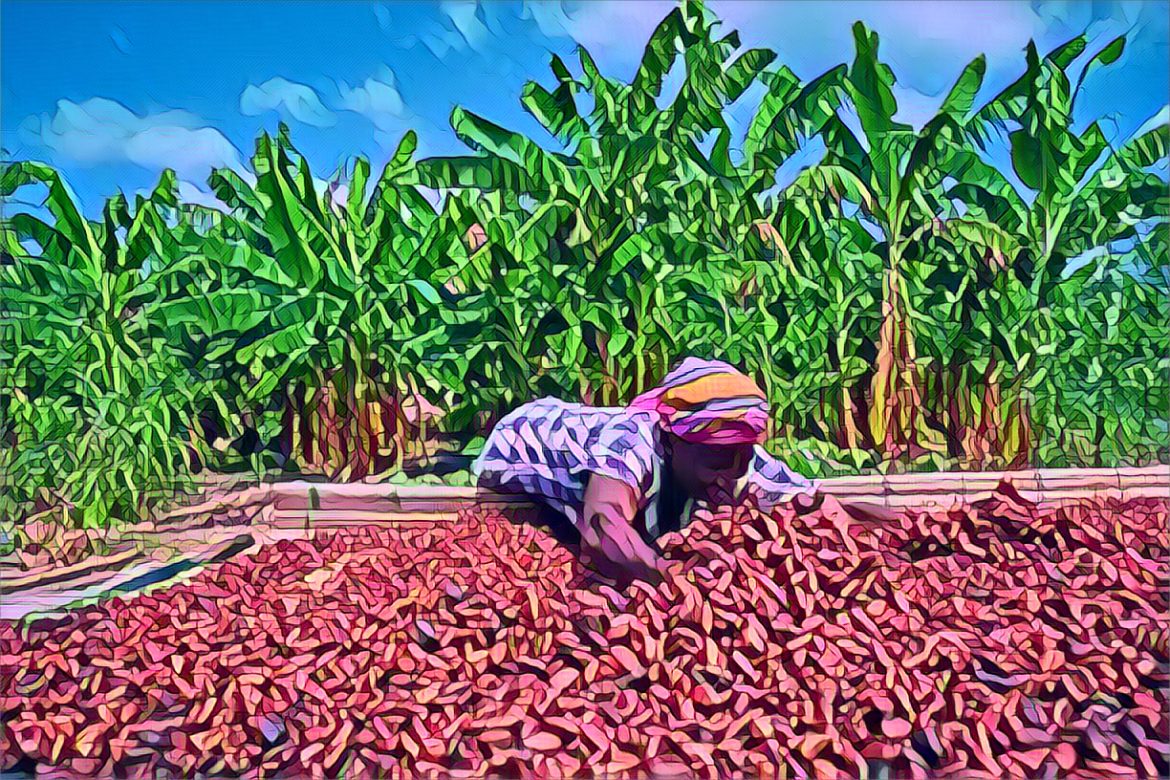Ghana is setting its sights on rejuvenating its cocoa plantations ravaged by the notorious cocoa swollen shoot virus, thanks to a substantial $200 million loan from the World Bank. The country’s cocoa regulator, Cocobod, plans to channel these funds into a significant rehabilitation effort to breathe new life into the affected farms. This move comes as a beacon of hope for the West African nation, which has seen its cocoa output dramatically reduced due to the disease, alongside challenges such as aging plantations, illegal mining, and smuggling.
Emmanuel Opoku, Cocobod’s Deputy Chief Executive in charge of operations, shared insights into the dire situation. “The disease has led to the loss of about 500,000 hectares of farmlands and a notable drop in our cocoa output,” he remarked. From a record-breaking 1.048 million tons in the 2020/21 season, Ghana’s production plummeted to just 600,000 metric tons last year, putting its status as the world’s second-biggest cocoa producer after the Ivory Coast under threat.
A substantial portion of the World Bank loan, amounting to $132.8 million, along with counterpart funding, is earmarked for the rehabilitation of farms and for bolstering knowledge on the virus strains. Opoku outlined the long-term nature of the rehabilitation process, which is expected to span at least five years before economic production can resume. “Our efforts have been constrained by the country’s economic woes and Cocobod’s limited resources,” he added, highlighting the challenges faced in the battle against the cocoa swollen shoot virus.
Under the rehabilitation plan, Cocobod will take control of farms blighted by the disease, replacing sick trees with healthy ones to facilitate growth up to the fruiting stage before returning them to the farmers. This initiative follows a similar effort in 2018 funded by a $600 million loan from the African Development Bank (AfDB), aimed at rejuvenating aging and disease-stricken plantations. However, the programme’s ambition to cover 156,000 hectares was hampered by Ghana’s economic downturn, affecting the scope of its impact.
Despite these challenges, the AfDB-funded programme has made significant strides, with more than 88,000 hectares of farmland rejuvenated, 40,000 of which are poised to be returned to farmers shortly. Alhassan Bukari, president of the country’s Cocoa, Coffee and Sheanut Farmers’ Association, emphasized the urgency of these rehabilitation efforts, acknowledging the widespread impact on farmers.
The need for aggressive action is underscored by a 35% drop in graded and sealed cocoa arrivals at the start of this season, attributed to harsh Harmattan winds and ongoing production challenges. As Ghana endeavors to restore its cocoa sector to its former glory, the World Bank loan represents a critical lifeline, promising a future where the nation can once again thrive as a leading cocoa producer, benefiting farmers and communities across the country.





1 comment
Thanks for sharing. I read many of your blog posts, cool, your blog is very good.